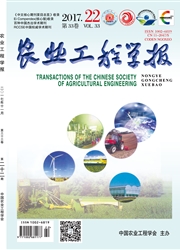

 中文摘要:
中文摘要:
概述了国内外利用农林废弃木质纤维素、能源作物和生活垃圾等生物质制备生物液体燃料的发展现状和工程进展动态,着重讨论了美国、巴西、欧洲、加拿大等国促进生物液体燃料发展的政策和法规,介绍了各国在纤维素乙醇、油脂加氢、气化-费托合成液态烃等生物液体燃料制备技术的大型运行及在建工程装置,分析了中国该领域的基础,分析了生物液体燃料发展中存在的主要障碍,如原料成本高及供给不确定,高生产成本及政策不确定性。提出继续研发高效的生物液体燃料技术路线、加大中试和示范工厂建设和投入、开展生物液体燃料生产企业与航空公司及与传统能源化工公司的合作等促进其未来发展的建议与方向。同时应立足国情,加强国家层面的生物液体燃料使用目标,完善政策保障,建立反映各类能源环境成本的能源价格和税收制度,为生物液体燃料能源产业发展建立公平的竞争环境。
 英文摘要:
英文摘要:
Biofuels derived from renewable biomass has been the focus of biD-based economy. Especially the development of new processes and facilities from lignocellulosic waste for advanced biofuel production represents an important field for academic research and industrial innovation within bioenergy development. The technical pathways for advanced biofuel production include the processes of cellulosic ethanol through lignocellulose hydrolysis-sugar fermentation, two-step hydrogenation (hydrodeoxygenation and hydroisomerization) of oils and fats (HVO), biomass gasification-Fischer Tropsch synthesis, biomass pyrolysis-upgrading of biD-oil and hydrotreating of algae oil via thermochemical, biochemical and hybrid conversions. BiD-oil, syngas, and sugars are used as platform chemicals. The progress of advanced biofuel development and the project activities in foreign countries were reviewed, which used lignocellulosic biomass, energy crops, municipal solid waste and organic waste as feedstock. The policies and regulations of advanced biofuels in America, Brazil, European Union and Canada, were described and compared. The current status of commercial and demonstration-scale facilities for advanced biofuel production was also discussed, mainly following the conversion processes of lignocellulosic ethanol, hydrotreated oils/fats (HVO) and biomass gasification-Fischer Tropsch synthesis. Although advanced biofuels have advantages for sustainable development, energy security and low carbon emission, the overall production and develop pathways cannot have cost parity with fossil-based fuels. The key barriers associated with its high cost include the unreliable feedstock availability, high production cost and uncertainty of policies. Biomass feedstock, especially lignocellulosic biomass, has huge annual amount worldwide, yet the significant hurdles for collecting, transportation and storage of biomass are needed to overcome in the scale-up of advanced biofuel production. And the limited lignocellulosic feedstock supply i
 同期刊论文项目
同期刊论文项目
 同项目期刊论文
同项目期刊论文
 期刊信息
期刊信息
